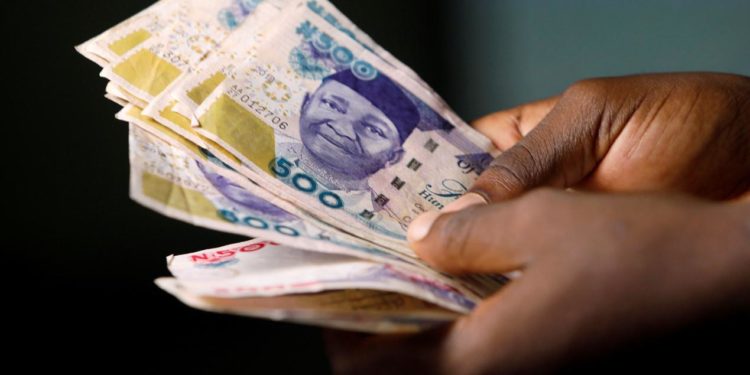Naira vs Cedi: Nigerian currency appreciates against local currency by 16.68% in Q1 2022
The Nigerian currency has gained a huge 16.68% year to date (YTD) gain against the Ghanaian Cedi in the first quarter of 2022.
The naira’s appreciation against the cedi, is indicative of an increase in Nigeria’s foreign exchange position.
Despite Ghana’s central bank raising interest rates to offset shortfalls caused by global tensions in Europe, the Nigerian currency rose against the Ghanaian Cedi in the first quarter of 2022.
The Bank of Ghana increased lending rate to 17%, signaling a tough stance against rising prices of goods and fuel, as well as a weakening local currency that has harmed investor confidence.
The Ghanaian Cedi/Nigerian Naira (GHSNGN) was trading at a 5-year low of 56.895. This is a gain for the Naira of around 26.69% over the last five years with the most decline seen this year.
Ghana’s cedi has lost roughly 20% of its value versus the dollar this year.
Read: GSE-CI inch up on share price gains in SIC, ETI
The Cedi trades the dollar at 0.1369, indicative of a 17.12% decline against the US dollar (YTD). The Ghana Cedi has lost 44.63% of value against the US dollar in the last 5 years.
The conflict between Russia and Ukraine has impacted negatively on Ghana’s exchange rate, particularly in the construction, agriculture, and international trade sectors.
Russia and Ukraine accounted for around 2.5% of Ghana’s total non-oil imports and 0.4% of Ghana’s total exports in the recent past. Grain, wheat flour and fertilizers are the most common Russian imports.
In 2021, Russia accounted for roughly 28.7% of Ghana’s grain imports, while in the first two months of 2022, Russian grain imports accounted for 31.2% of total grain imports. In the first two months, Russia supplied 50.0% of the flour and 39.2% of fertilizer imports by Ghana respectively.
Ghana’s major imports from Ukraine are iron ore and steel, which account for more than 60% of total iron ore and steel imports.
As a result, supply disruptions and higher steel and iron ore import prices are almost certain to hit the building industry.








